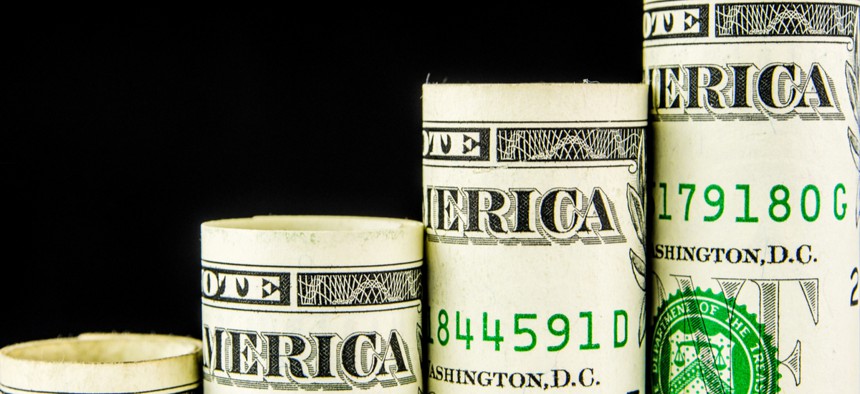House Lawmakers Call for Pay Parity Between Military and Civilian Federal Workers

Jan_S/Shutterstock.com
Although the House version of a defense policy bill includes a 3% pay increase for members of the military in 2021, an appropriations bill under consideration effectively endorses only a 1% raise for civilians.
A bipartisan group of House lawmakers last week urged appropriators to increase the pay raise proposed for federal civilian employees next year to match that planned for members of the military.
The House’s version of the 2021 National Defense Authorization Act would provide military service members with a 3% raise next year. But an appropriations bill unveiled last week has no provision on federal employee compensation, effectively endorsing President Trump’s plan to provide a 1% across-the-board increase to basic pay and keep locality pay at 2020 levels.
Last week, a group of House Democrats led by Rep. Gerry Connolly, D-Va., urged appropriators to follow Congress’ tradition of instituting pay parity and increase federal civilian pay by 3% in 2021. The House Appropriations Committee is slated to take up the spending bill that would include a pay raise for civilian employees on Wednesday.
“We write to ask that this pay parity continue—particularly in light of the continued work of our federal employees throughout a global pandemic,” the lawmakers wrote. “During this global crisis, our federal government never shut down. Instead, its civilian workforce ramped up: delivering mail, providing health care to veterans, inspecting meat and poultry facilities, and researching cures for COVID-19. We should not take these dedicated employees for granted.”
Joining Connolly in signing the letter were Reps. Carolyn Maloney, D-N.Y.; John Sarbanes, D-Md.; Don Beyer, D-Va.; Brian Fitzpatrick, R-Pa.; Anthony Brown, D-Md.; Jamie Raskin, D-Md.; Jennifer Wexton, D-Va.; and David Trone, D-Md.
The lawmakers noted that last year, the House passed legislation to restore pay parity between members of the military and civilian federal workers.
“We feel strongly that federal employees have demonstrated that they are invaluable to this nation and that they deserve parity with respect to pay increases provided by the federal government,” they wrote. “The pay increase equates to less than one-tenth of 1% of the federal discretionary budget—spread across 12 appropriations bills . . . This year in particular, our federal civilian workforce has served this nation at the time when services were needed most. Congress must step up and ensure that the federal workforce is treated with the respect it deserves.”






